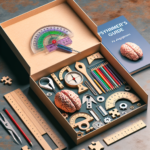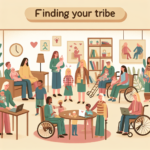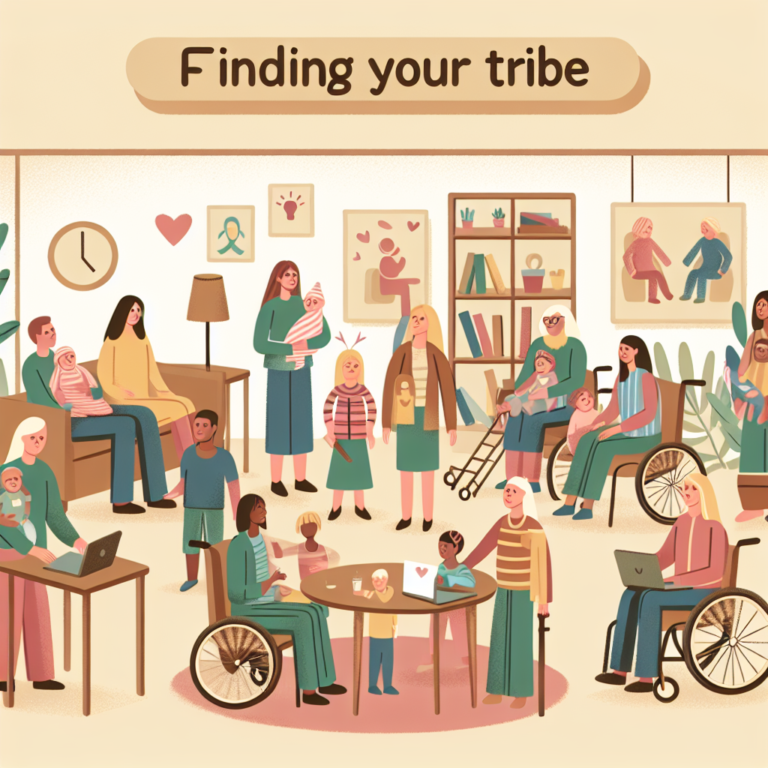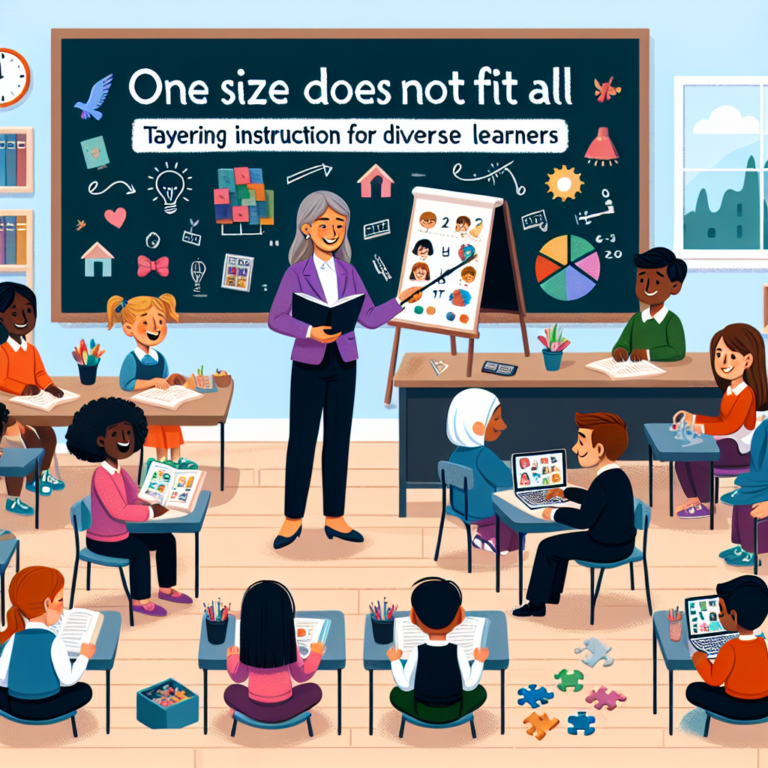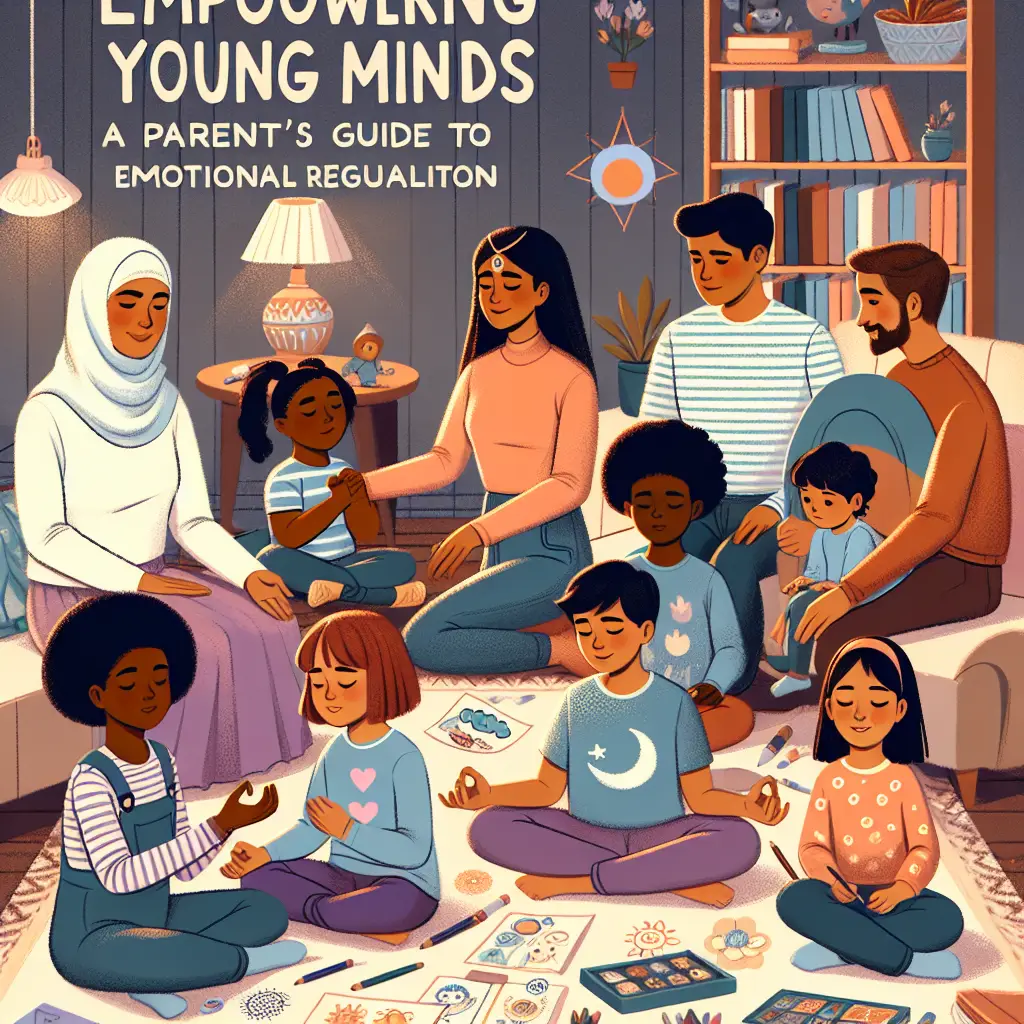
Empowering Young Minds: A Parent’s Guide to Emotional Regulation for Kids
Introduction: The Emotional Landscape of Childhood
In today’s fast-paced world, children face numerous challenges that can affect their emotional well-being. From academic pressures to social dynamics, understanding and managing emotions has become more crucial than ever. The ability to regulate emotions not only affects children’s mental health but also their overall development, relationships, and future success. This article aims to equip parents with effective strategies and insights into emotional regulation, empowering young minds and nurturing emotional intelligence.
By the end of this guide, you’ll find valuable tools to support your child’s emotional growth, paving the way for healthier relationships and a more resilient character. Let’s delve into Empowering Young Minds: A Parent’s Guide to Emotional Regulation for Kids.
Understanding Emotional Regulation
What is Emotional Regulation?
Emotional regulation refers to the processes by which individuals influence their emotions, when they have them, and how they experience and express them. For children, this can manifest in various ways, from controlling tantrums to effectively navigating feelings of frustration and sadness.
The Importance of Emotional Regulation
Academic Success: Children with strong emotional regulation skills tend to perform better academically. They can focus on tasks, seek help when needed, and manage stress effectively.
Building Relationships: Effective emotional regulation fosters healthy interpersonal relationships. Children learn to empathize, communicate their feelings clearly, and resolve conflicts constructively.
- Mental Health: Developing emotional regulation can prevent mental health issues such as anxiety and depression. It equips children with coping mechanisms to handle life’s challenges.
Real-world Case Study: The Impact of Emotional Regulation
Consider a fourth-grader named Mia. Mia struggled with managing her emotions, often leading to outbursts at school whenever she felt overwhelmed with assignments. After her teachers and parents implemented strategies for emotional regulation, such as mindfulness practices and structured emotional check-ins, Mia experienced a significant shift. Her grades improved, and her relationships with peers flourished. This case highlights the profound effect of emotional regulation on a child’s life.
Strategies for Empowering Young Minds
1. Modeling Emotional Regulation
Children learn by observing their parents and caregivers. Showcasing your own emotional regulation through your actions can provide a powerful learning experience for them.
Share Your Feelings: Talk about your emotions openly. Mistakes are opportunities for learning; share how you handle your own emotional challenges.
- Practice Calmness: When faced with stress, model healthy coping mechanisms, such as deep breathing or taking a break.
2. Teaching Emotional Vocabulary
One of the first steps in Empowering Young Minds: A Parent’s Guide to Emotional Regulation for Kids is to teach them how to articulate their feelings.
Use Emotion Charts: Create or use charts that depict various emotions. Encourage kids to identify how they feel and express it verbally.
- Storytime: Read books that highlight characters experiencing different emotions. Discuss these emotions and how characters cope with them.
3. Introducing Mindfulness Techniques
Mindfulness practices can greatly aid in emotional regulation by promoting present-moment awareness.
Breathing Exercises: Teach children simple breathing exercises they can practice when they feel overwhelmed.
- Mindful Moments: Encourage moments of silence and reflection, such as a quiet time for 5 minutes every day.
4. Establishing Routines
Predictability can provide comfort to children and help them manage emotions better.
Daily Check-Ins: Incorporate structured times during the day to check in on emotions. Ask them to rate how they feel on a scale from 1 to 10 and discuss if anything is causing distress.
- Consistent Scheduling: A routine helps them anticipate daily activities and reduces anxiety.
Emotional Regulation Activities for Kids
1. Emotion Journals
Encouraging kids to maintain an emotion journal can be a fun and engaging way to track their feelings.
- How to Implement: Provide a simple notebook where they can write or draw about their day and how various events made them feel.
2. Role-Playing
Role-playing different scenarios can be an effective way to practice emotional responses.
- Example: Simulate a situation where a friend is upset. Encourage your child to express empathy and suggest ways to help.
3. Creative Arts
Art can be a fantastic medium for expressing emotions.
- Art Therapy: Encourage your child to create artwork that represents their feelings, offering them a safe space to express themselves.
Supporting Emotional Regulation in Difficult Situations
1. Handling Tantrums and Outbursts
When emotions run high, addressing them calmly is essential.
Stay Calm: Your reaction to a tantrum can either escalate or de-escalate the situation. A calm demeanor can help soothe your child.
- Post-Tantrum Discussion: After the storm passes, discuss what happened. Validate their feelings and work together to find solutions.
2. Dealing with Peer Pressure
As children grow, they face social pressures that may challenge their emotional regulation.
Open Dialogue: Foster an environment of open communication. Encourage your child to share their social experiences without fear of judgment.
- Decision-Making Skills: Help children develop critical thinking regarding peer influences, empowering them to stand by their values.
Resources for Parents
Books
- The Whole-Brain Child by Daniel J. Siegel and Tina Payne Bryson
- Raising an Emotionally Intelligent Child by John Gottman
Online Platforms
Mindfulness Apps: Introduce apps like Headspace for Kids, which provide guided meditations tailored for children.
- Parenting Forums: Joining online communities can provide support, resources, and shared experiences.
Conclusion: Nurturing a Generation of Emotionally Resilient Kids
Empowering young minds through emotional regulation is one of the greatest gifts a parent can provide. By fostering awareness, encouraging open communication, and utilizing age-appropriate strategies, we create a foundation that supports not just academic success but emotional health and resilience.
In your journey towards emotional regulation, remember that the aim is not to eliminate emotions but to equip your children with the tools to understand, express, and manage them effectively. Each small step taken today can significantly impact your child’s future, creating a more harmonious family environment and healthier social interactions.
Inspiration for Parents:
“Every day may not be good, but there’s something good in every day." Embrace the challenges and joys of parenthood as you guide your child on their emotional journey.
FAQs Section
1. What age should I start teaching my child emotional regulation?
It’s never too early to start. You can introduce basic emotional vocabulary and modeling behaviors as early as preschool age.
2. How can I tell if my child struggles with emotional regulation?
Look for signs such as frequent outbursts, difficulty in friendships, or avoidance of social situations. A child’s inability to express feelings might indicate a need for support in emotional regulation.
3. What are some quick techniques for calming my child in the moment?
Simple techniques include deep breathing exercises, counting to ten, or providing a quiet space to regroup.
4. How do I handle my frustration when my child is having an emotional episode?
Take deep breaths, step back if possible, and remind yourself that emotional regulation is a learning process for both you and your child. Communication after the episode encourages learning.
5. Can emotional regulation skills impact my child’s academic performance?
Absolutely! Improved emotional regulation can lead to better concentration, increased willingness to seek help, and enhanced social interactions—all contributing to academic success.
By following the insights and strategies laid out in this guide, parents can begin the rewarding journey of Empowering Young Minds: A Parent’s Guide to Emotional Regulation for Kids, fostering resilience and emotional intelligence in the next generation.

